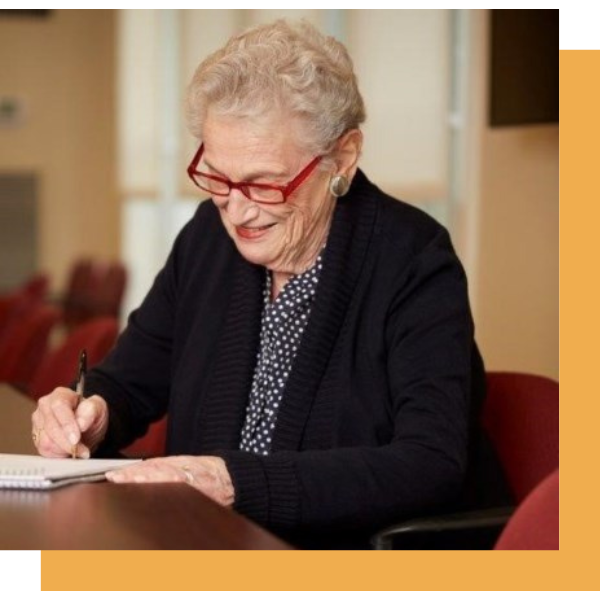Memorial Awards & Obituaries

In Memoriam: Lyn Weiner, MPH
The Research Society on Alcohol honors the memory of Lyn Weiner, MPH, a pioneer in the fetal alcohol field, died on December 13, 2025 at the age of 90. With her colleague, Hank Rosett, Lyn developed a simple drinking history for use with pregnant women based on research in the prenatal clinic at Boston City Hospital. Together they published their findings in multiple papers and chapters. Their book, Alcohol and the Fetus: A Clinical Perspective, was one of the earliest summaries of alcohol’s effects on fetal development and the benefits of treatment during pregnancy. As Director of the Fetal Alcohol Education Program at Boston University School of Medicine, Lyn along with colleague Barbara Morse, developed training programs, (Alcohol and the Fetus: A Teaching Package and Here’s to Healthy Babies), teaching hundreds of professionals around the country how to successfully intervene with pregnant women and address the needs of affected children. The program ran a hotline where people could call with questions about their alcohol use. She co-founded the first ever support group for families raising children with FAS, out of which came the booklet FAS: Parent and Child. Hundreds of families benefited from the wisdom shared by other families. Lyn was known for her compassion towards women, and was a firm believer in the benefits of treatment. Her legacy is found in every program aimed at helping women overcome their addictions.

In Memoriam: Min Wang, Ph.D.
The Research Society on Alcohol honors the memory of Min Wang, who passed away on January 2, 2026.
Min was affiliated with the University of Louisville and was a valued member of the research community.
A colleague from the University of Louisville shared:
“It is with deep sadness that we share the passing of our colleague, Min Wang. Min was a respected researcher and a beloved member of our team whose work and presence made a lasting impact on our research community. She will be deeply missed.”
Min became a member of the Research Society on Alcohol in 2024 and attended the 2021 and 2022 Annual Meetings. She will be remembered for her contributions to research and her presence within the RSA community.

In Memoriam: Aaron White, Ph.D.
The RSA community mourns the loss of Aaron White, Ph.D., a distinguished alcohol researcher and senior scientific leader at the National Institute on Alcohol Abuse and Alcoholism (NIAAA), who passed away on November 18, 2025. Dr. White first attended RSA’s 39th Annual Meeting and went on to participate in seven RSA Annual Meetings in total, including the meeting held in June 2025. Through his engagement with the scientific community, his work and presence were known to many within RSA.
Dr. White served as Senior Scientific Advisor to the NIAAA Director and Acting Director of the Epidemiology and Biometry Branch, roles in which he played a central part in advancing and translating alcohol research for clinicians, educators, policymakers, and the public. He joined NIAAA in 2008 as a program officer in the Division of Epidemiology and Prevention Research before moving into leadership within the Office of the Director in 2015.
Throughout his career, Dr. White helped shape national research priorities related to alcohol use, including youth drinking trends, alcohol-related harms, and the neurobiology of intoxication. His scholarly contributions, including influential work on alcohol blackouts and binge drinking, informed public health understanding and policy and helped bridge scientific discovery with real-world impact.
Dr. White’s dedication to rigorous, evidence-based science resonated strongly with members of the Research Society on Alcohol and the broader alcohol research community. We honor his scientific legacy and extend our deepest condolences to his family, colleagues, and all who are mourning the loss of this respected fellow scientist.
Click the button below to read the In Memoriam on the NIAAA Site:

In Memoriam: Charlotte Boettiger, Ph.D.
Dr. Boettiger was a faculty member of the Psychology and Neuroscience Department at the University of North Carolina Chapel Hill and member of the Bowles Center for Alcohol Studies, passed away on March 27, 2025, with her family at her side. She is survived by her husband, Jeffrey Cooney, her two children, Fiona and Avery Cooney, and her parents, Rick and Eileen Boettiger, as well as numerous colleagues, friends, and students who deeply admired her. Charlotte was 55. She received her A.B. in integrative biology from the University of California – Berkeley, and her Ph.D. in neuroscience from the University of California – San Francisco, studying learning mechanism in birdsong. As a post-doctoral fellow, Charlotte shifted her focus to study the human brain using a combination of brain imaging and behavior, but her appreciation for basic science models remained throughout her career. In 2007, Charlotte joined the faculty at the University of North Carolina Chapel Hill in the Department of Psychology and Neuroscience as an Assistant Professor; she earned tenure in 2015 and was promoted to full Professor in 2021. She was a long-time member of the Society for Neuroscience, the Cognitive Neuroscience Society, and the Research Society on Alcohol. Charlotte’s research focused on the association between alcohol and other substance use disorders and neurocognitive function.
Her technical expertise was in the use of neuroimaging and interventions to probe neurotransmitter function in support of executive control processes in humans. She had a knack for identifying and/or developing behavioral tasks that could parse out specific aspects of a cognitive construct. For example, she developed an fMRI-compatible behavioral task quantifying Now versus Later bias and demonstrated that, even after long-term abstinence, people with a history of alcohol use disorder (AUD) showed elevated Now bias compared to controls. Her lab further found that naltrexone, an opioid receptor antagonist used to treat AUD, shifted Now bias depending on one’s locus of control, which was linked to frontal dopamine function. Her research also focused on efficiency and flexibility of behavioral choice, as learning to replace habitual responses to drug-related stimuli with more adaptive responses is a crucial task in recovery from addiction. Drawing from preclinical models showing that chronic drug exposure impairs stimulus-response (S-R) unlearning, Charlotte established a paradigm to study S-R learning in humans and then identified fronto-striatal circuits in the human brain associated with the ability to learn S-R associations. She demonstrated that people with a history of substance use transition from a goal-directed to a habit-based response strategy more quickly than do people without such history, and that transcranial brain stimulation can modulate this behavior.
Charlotte had an uncanny ability to recruit talented graduate students, postdoctoral fellows, and undergraduate students to the CAB Lab. She was a beloved mentor, encouraging independence in trainees while maintaining availability. She was known to drop everything to track down a paper or protocol for a student, and she saw and nurtured great potential in each of them. Charlotte was a champion of those who could not champion themselves. She spoke out and worked toward social justice, and she valued every student and uplifted voices that might otherwise have been ignored. Charlotte was similarly dedicated as a colleague, taking on consequential administrative work at every level of the university. She was an incredible and reliable collaborator, working with her friends and colleagues to build better, more impactful, and more complete models of the impact of substance use on cognition in the service of understanding functioning of the mind and brain. As a consequence, she was surrounded by colleagues and students who admired and cared for her deeply. We remember her as a scientist who pushed us all to think deeply about how our work could advance understanding of the human condition, and did so with kindness, compassion, and rigor. She leaves a rich legacy embodied by the scientists she trained, a network of collaborators and many friends. She will be deeply missed.
If you wish to leave a remembrance to Charlotte for her family, you can do so here: https://obituaries.seattletimes.com/obituary/charlotte-cooney-ph-d-1092839235
If you would like to support a graduate student award in honor of Charlotte Boettiger, please donate to the Human Neuroscience Group in honor of Charlotte: https://give.unc.edu/donate?f=104566&p=psyc

In Memoriam: Warren Bickel, Ph.D.
Warren Bickel, whose innovative approach to addiction research saved lives, inspired generations of scientists, and put him among the top 1 percent of the world most highly cited researchers, died Saturday, Sept. 28, 2024. He was 68.
In 2011, Bickel was among the first scientists to join Virginia Tech’s Fralin Biomedical Research Institute at VTC. There, he became the inaugural director of the institute’s Addiction Recovery Research Center and in 2016 was named director of its Center for Health Behaviors Research.
His research helped pioneer buprenorphine treatment, one of only three Food and Drug Administration (FDA)-approved medications to treat opioid use disorder, which affects more than 40 million people worldwide.
Appointed as the Virginia Tech Carilion Behavioral Health Research Professor by the university Board of Visitors in 2016, Bickel applied principles of behavioral economics to the study of addiction and recovery. He established the world’s first registry of people in recovery, sorting through factors that make some people more successful than others in overcoming addictions.
Bickel’s research analyzes how people think about the future and how that affects their decision-making. It grew from his observation that a hallmark of addiction is the tendency to choose immediate gratification over longer-term outcomes, usually at great cost to a person’s health and well-being.

In Memoriam: Janice Carol Froehlich, Ph.D.
Janice C. Froehlich, Ph.D., a long-time member of the Research Society on Alcohol and prominent scholar in the field, passed away September 26, 2024. Dr. Froehlich was born in San Bernardino, CA, and graduated from the University of California, Davis, receiving her master’s and Ph.D. degrees from Syracuse University. After completing her post-doctoral fellowship in anatomy at the University of Oregon Health Sciences Center (today, OHSU), she joined the Department of Medicine at Indiana University as an assistant professor in 1985, rising to full professor in 1998 and later becoming a Chancellor's Professor. She also held appointments in Cellular and Integrative Physiology and Medical Neurobiology. She was a long-time member of Indiana University’s Alcohol Research Center, of which she served as a Scientific Co-Director.
Dr. Froehlich’s career was dedicated to studying the hormonal, neurochemical, behavioral, and genetic factors that govern alcohol effects and alcohol use disorder. She conducted foundational work in ethanol-induced activation of the brain’s endogenous opioid system. Her laboratory made important contributions to the development of opioid antagonists as pharmacotherapies for alcohol use disorders. Her preclinical research using Indiana University’s alcohol-preferring P and HAD rats advanced the understanding of brain systems, neurochemical mechanisms, and behavioral processes associated with high voluntary alcohol drinking. Possessing a broad view of the field, Dr. Froehlich also contributed to research in humans.
Her professional service to the alcohol research field was extensive. She served on the editorial boards of several journals and on many review panels, including as an appointed member of the Alcohol and Toxicology NIH study section. Dr. Froehlich also embraced leadership roles in her service to Indiana University as a key member of multiple university committees and as an active participant in shared faculty governance. She served from 2005 to 2008 as the Interim Vice Chancellor for Research and Interim Associate Vice President for Research at IUPUI (now Indiana University Indianapolis). A passionate advocate for the pursuit of collaborative research excellence on the Indianapolis campus, she relished her role as a liaison between the School of Medicine and other schools at Indiana University to stimulate interdisciplinary research.
Dr. Froehlich took a keen interest in the mentoring of students, fellows, and junior colleagues. Even after retirement, she continued to volunteer her time to provide incisive advice to those whom she had helped along the way. She became an active member of the Indiana University Indianapolis Senior Academy where, true to form, she served three consecutive terms on its Board of Directors and served on its Scholarship Committee. Those with the privilege of knowing Jan valued her sharply honed analytic mind that was expressed with an unmistakably special flourish and zest. She was a true original who will be missed dearly.

In Memoriam: Kenneth R. Warren, PhD
Kenneth Warren, known for his intelligent, funny, selfless, and compassionate personality, left us on August 21, 2024 after a brief bout with cancer. Ken was 81 years old and lived a life filled with service to others, especially among the alcohol research community. Ken was a biochemist, having received his Ph.D. from Michigan State, and after two postdocs and a stint at Walter Reed went to work at the National Institute on Alcohol Abuse and Alcoholism. He rose through the ranks and served as Acting Director from 2008 to 2014. He retired as Deputy Director in 2015.
Ken played a major pioneering role in the developing field of fetal alcohol spectrum disorders (FASD). He was instrumental in formulating public health policy regarding FASD, authoring the first U.S. Government health advisory on alcohol and pregnancy and was the chief architect for the Surgeon General’s advisory that added warning labels about alcohol consumption now found on beverage containers. Ken was also the “unofficial” historian of the area, writing about legal, medical, and public policy issues from a historical perspective and was influential in developing international and national collaborations in the alcohol field, such as the Collaborative Research on Addiction at NIH — CRAN. Ken was at the helm of NIAAA when forces were trying to reorganize the NIH. He was the recipient of the 1982 Public Health Service’s Superior Service Award, the 1994 Research Society on Alcohol (RSA) Seixas Award, the 2002 Henry Rosett Award, and the RSA Lifetime Achievement Award in 2014.
But Ken was more than an outstanding administrator and scientist. He played the saxophone professionally as a young man, and many of us were duly impressed when he serenaded us at the opening of an International Society for Biomedical Research on Alcohol (ISBRA) meeting in Japan. He was known as someone who enjoyed the simple pleasures of life, who loved his family, work, travel, and colleagues. He has left an enduring legacy and will be sorely missed.
